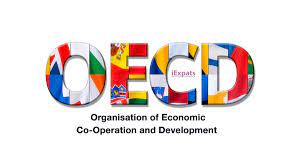CURRENT AFFAIRS
Get the most updated and recent current affair content on Padhaikaro.com
OECD/G20 Inclusive Framework tax deal
- IAS NEXT, Lucknow
- 12, Oct 2021

The two-pillar solution under the above mentioned framework will be delivered to the G20 Finance Ministers meeting in Washington DC on 13 October, then to the G20 Leaders Summit in Rome at the end of the month.
- Countries are aiming to sign a multilateral convention during 2022, with effective implementation in 2023.
Background:
India has already joined the G20-OECD inclusive framework deal that seeks to reform international tax rules and ensure that multinational enterprises pay their fair share wherever they operate.
- 130 countries and jurisdictions, representing more than 90% of global GDP, have signed the deal.
Two pillars of framework:
- Dealing with transnational and digital companies. This pillar ensures that large multinational enterprises, including digital companies, pay tax where they operate and earn profits.
- Dealing with low-tax jurisdictions to address cross-border profit shifting and treaty shopping. This pillar seeks to put a floor under competition among countries through a global minimum corporate tax rate, currently proposed at 15%.
Expected outcomes:
If implemented, countries such as the Netherlands and Luxembourg that offer lower tax rates, and so-called tax havens such as Bahamas or British Virgin Islands, could lose their sheen.
Impact/implications on India:
India will have to roll back the equalisation levy that it imposes on companies such as Google, Amazon and Facebook when the global tax regime is implemented.
What is Equalisation levy?
- In 2016, India imposed an equalisation levy of 6% on online advertisement services provided by non-residents. This was applicable to Google and other foreign online advertising service providers.
- The government expanded its scope from April 1, 2020, by imposing a 2% equalisation levy on digital transactions by foreign entities operating in India or having access to the local market.
What is BEPS?
Base erosion and profit shifting (BEPS) refers to tax planning strategies used by multinational enterprises that exploit gaps and mismatches in tax rules to avoid paying tax.
- Developing countries’ higher reliance on corporate income tax means they suffer from BEPS disproportionately.
- BEPS practices cost countries USD 100-240 billion in lost revenue annually.